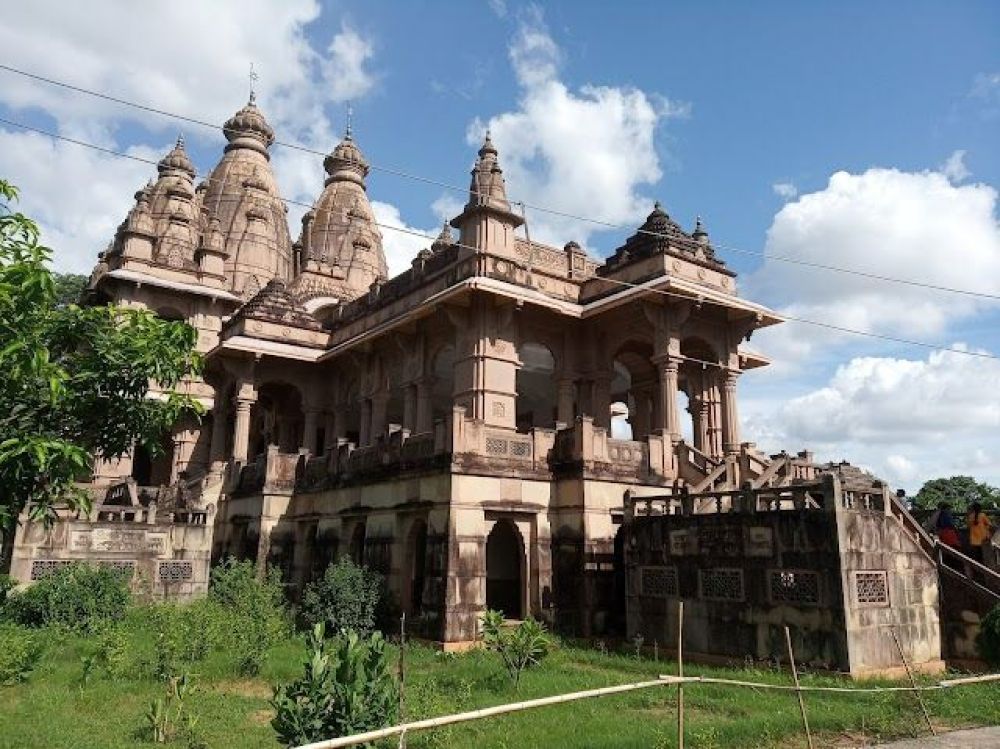

The Naulakha Mandir, located in the holy city of Deoghar in the state of Jharkhand, India, is a significant spiritual destination with roots deeply embedded in the religious tourism history of the region. Its name 'Naulakha' translates to 'nine lakhs' in Hindi, which refers to the cost of construction at the time of its creation, amounting to nine lakh rupees.
The temple, dedicated to the Hindu deity Radha-Krishna, was constructed in the year 1948 by a charitable trust headed by a pious individual named Shree Baijnath Prasad. The temple has an interesting architectural style that is reminiscent of the Ramakrishna Temple in Belur, West Bengal, and has become a notable example of neo-classical architecture in the region.
The significance of the temple in the tourism history of Deoghar cannot be understated. It serves not only as a place of worship but also as an attraction for its architectural beauty and the peaceful environment it offers to visitors. Over time, Naulakha Mandir has become an integral part of the religious circuit in Jharkhand, attracting tourists from across India and the world.
Pilgrimages to Deoghar often include a visit to the Naulakha Mandir alongside the ancient and renowned Baidyanath Jyotirlinga Temple, further enhancing the temple's importance in the context of spiritual tourism.
The latest trend in tourism at Naulakha Mandir sees a blend of spirituality with eco-tourism and cultural experiences. Visitors are increasingly interested in understanding the heritage and the cultural significance of the temple, taking guided tours to delve deeper into its history. The lush greenery and well-maintained gardens around the temple compound also attract those looking for tranquility amidst nature.
With the advent of digital media and online platforms, virtual tours and digital darshans during auspicious days have become increasingly popular, catering to devotees who cannot make it to the temple in person.
The local government and tourism boards have been taking initiatives to promote sustainable tourism practices to preserve the sanctity and beauty of Deoghar's temples, including Naulakha Mandir. They are focusing on improving infrastructure, accessibility, and tourist facilities to ensure a memorable and comfortable visit for all.
In conclusion, the Naulakha Mandir holds a cherished spot in the history of tourism in Deoghar, Jharkhand. Its allure lies not only in its religious significance but also in its architectural splendor and the serene ambience it presents to pilgrims and tourists alike. The temple's unique blend of devotion and serenity continues to draw visitors, sustaining its prominence as a must-visit destination in India's religious tourism landscape.